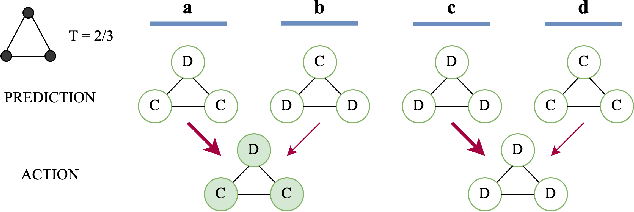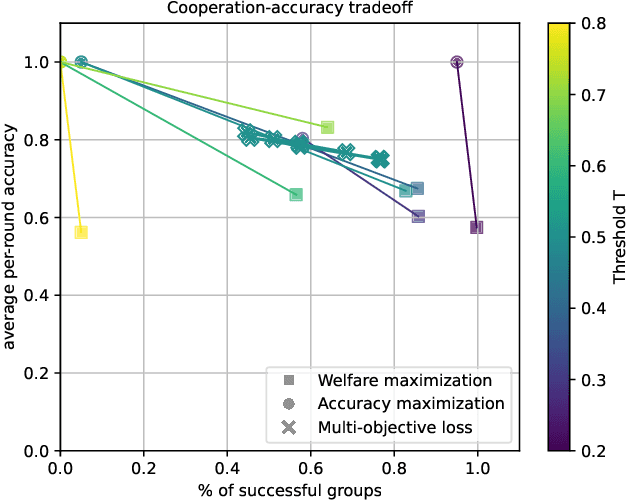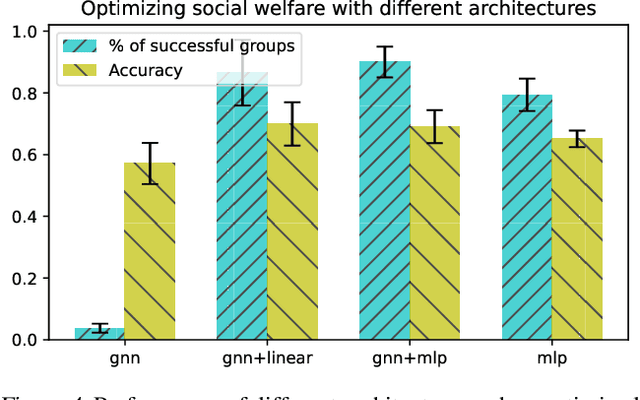Performative Prediction on Games and Mechanism Design
Paper and Code
Aug 09, 2024



Predictions often influence the reality which they aim to predict, an effect known as performativity. Existing work focuses on accuracy maximization under this effect, but model deployment may have important unintended impacts, especially in multiagent scenarios. In this work, we investigate performative prediction in a concrete game-theoretic setting where social welfare is an alternative objective to accuracy maximization. We explore a collective risk dilemma scenario where maximising accuracy can negatively impact social welfare, when predicting collective behaviours. By assuming knowledge of a Bayesian agent behavior model, we then show how to achieve better trade-offs and use them for mechanism design.
* Accepted to ICML 2024 Workshop on Agentic Markets, Vienna, Austria
 Add to Chrome
Add to Chrome Add to Firefox
Add to Firefox Add to Edge
Add to Edge